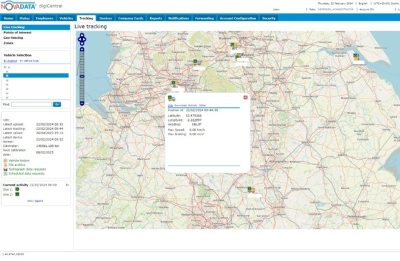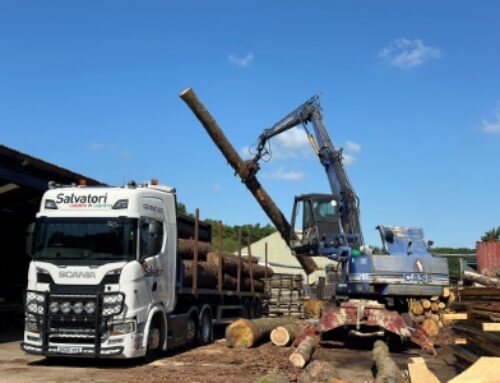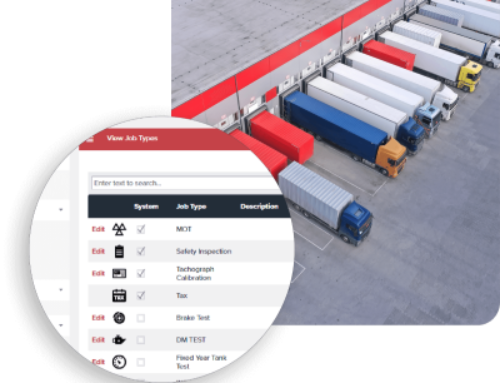Remote downloading: the best route?
 Derek Broomfield, chairman of Novadata, looks at the benefits of adopting digital tachograph remote download technology for UK fleets
Derek Broomfield, chairman of Novadata, looks at the benefits of adopting digital tachograph remote download technology for UK fleets
For UK transport operators, the security of the O-licence does, of course, rely on compliance with tachograph regulations. This is not optional – it is a legal requirement. The law requires that driver card data must be downloaded at least every 28 days, while vehicle unit data must be downloaded every 90 days.
However, the DVSA has even more stringent expectations. Membership of its Earned Recognition scheme requires driver cards to be downloaded at least every 14 days, and vehicle units to be downloaded at least every 42 days.
Traditionally, downloading has meant bringing vehicles back to depots, connecting download devices manually, and then transferring files to compliance software. Logically, therefore, the standards of best practice needed to achieve and maintain Earned Recognition membership would demand the vehicle spending even more time in the depot and off the road.
However, the advent of remote downloading has changed all that, bringing with it invaluable benefits in terms of real-time remote data collection, simplified compliance; and significant operational and financial advantages. It is difficult to see how most fleets could sustain Earned Recognition status without using remote downloading.
Remote downloading ensures that tachograph data is retrieved automatically within the required timeframes. This completely removes the risk of missed downloads, which can otherwise lead to penalties and reputational damage during DVSA inspections. Automatic download scheduling means operators can achieve compliance, and remain inspection-ready at all times.
Manual downloads require coordination and, particularly in larger fleets, quite complex administration. Drivers, depot staff, and compliance managers all need to handle files and transfer data – which means that they have to be in the same place at the same time. Not only does this require organisation within the depot, it also means that download visits must be factored into drivers’ already busy schedules. Remote downloading eliminates this, saving valuable staff hours and cutting down on paperwork. Managers can then access data instantly from any location, guaranteeing compliance without changing or interrupting schedules.
With traditional downloads, each vehicle may need to return to base for no other reason than to download the driver card and vehicle unit, even though it may be more logical and economical for it to be elsewhere. Remote downloading allows data collection directly from the road, reducing downtime and keeping vehicles operational for longer.
For organisations which operate from several different depots, the savings in time and planning multiply significantly – as do cost savings. Similarly, UK fleets working across Europe, or further afield, will find remote downloading particularly valuable, as downloads can be completed regardless of location, and without any participation from the driver, who may be resting in a different time zone.
 One of the most important things to ensure for a DVSA inspection is that tachograph records are clear, accurate and securely stored. Digital tachograph remote download systems securely transfer files to a central platform, ensuring that records cannot be lost. Data is encrypted and backed up, providing peace of mind that the evidence of tachograph downloading within the required deadlines, together with the actual data, is recorded and stored safely, ready for inspection.
One of the most important things to ensure for a DVSA inspection is that tachograph records are clear, accurate and securely stored. Digital tachograph remote download systems securely transfer files to a central platform, ensuring that records cannot be lost. Data is encrypted and backed up, providing peace of mind that the evidence of tachograph downloading within the required deadlines, together with the actual data, is recorded and stored safely, ready for inspection.
Traditional download methods have always required the driver and the vehicle to be present so that downloading can be completed using a physical download device. This may involve weekend or after-hours attendance for driver and/or manager, in order not to disrupt weekday schedules.
Remote downloading technology such as Novadata’s Remote Downloading & Tracking solution provides an invaluable real-time feed, which enables managers/operators to see the current state of play with any or all of their drivers, at any time. Using this technology, they can see each driver’s status in terms of hours driven. They can tell at a glance how many hours they legally have left to drive and when their next rest has to start. They can see the driver’s current activity, as well as being able to tell whether they have used their tachograph correctly, for example, whether it was set to ‘other work’ for the daily walkaround check. Real-time data allows managers to spot any infringements earlier, prevent fatigue-related risks, and improve workforce planning. This will also reduce the likelihood of costly fines for both drivers and businesses.
The savings in time alone for drivers and managers will yield cost savings as a natural consequence of time better spent, but there are other savings to be made too. Remote downloading reduces fuel and mileage costs by eliminating unnecessary depot trips.
Fleets using remote downloading do not need to purchase download tools, which can get lost or damaged, or may occasionally need to be updated with significant changes to digital tachograph operating systems.
By lowering the administrative burden on staff, remote downloading allows senior managers to focus on core business operations rather than compliance administration. Over time, these efficiencies can deliver significant financial savings.
As the UK road transport sector increasingly adopts digital solutions, remote tachograph downloading is well on track to become the industry standard. Implementing this technology now ensures that fleets remain competitive, efficient, and compliant in the long term.
Digital technology such as Novadata’s Online Tachograph Analysis solution also allows operators to integrate other aspects of their compliance, such as DVSA daily walkaround checks, fleet maintenance management, drivers licence checks and driver management. This centralises and secures a significant amount of data needed for compliance and helps operators to demonstrate more clearly that they are fulfilling their O Licence undertakings.
For UK fleet operators, the shift from manual tachograph downloads to remote downloading offers clear benefits: compliance made simple, less administration, stronger security, better driver oversight, and reduced costs. With more secure, time sensitive record keeping, operators are able to identify and address any problems promptly, making infringements – and encounters with the traffic commissioner – far less likely.
With enforcement agencies, particularly the DVSA, demanding accurate, up-to-date records, investing in remote tachograph downloading now is not just about convenience – it’s about safeguarding your business.












